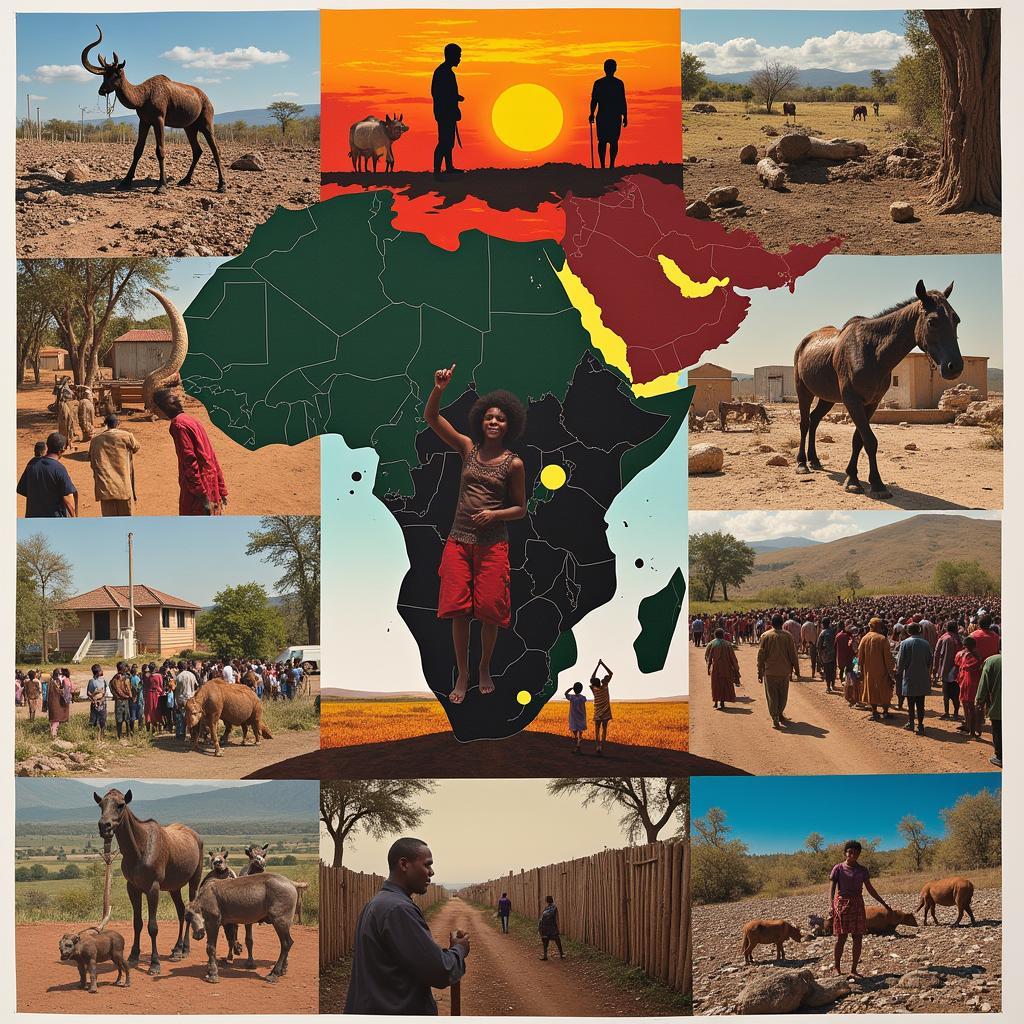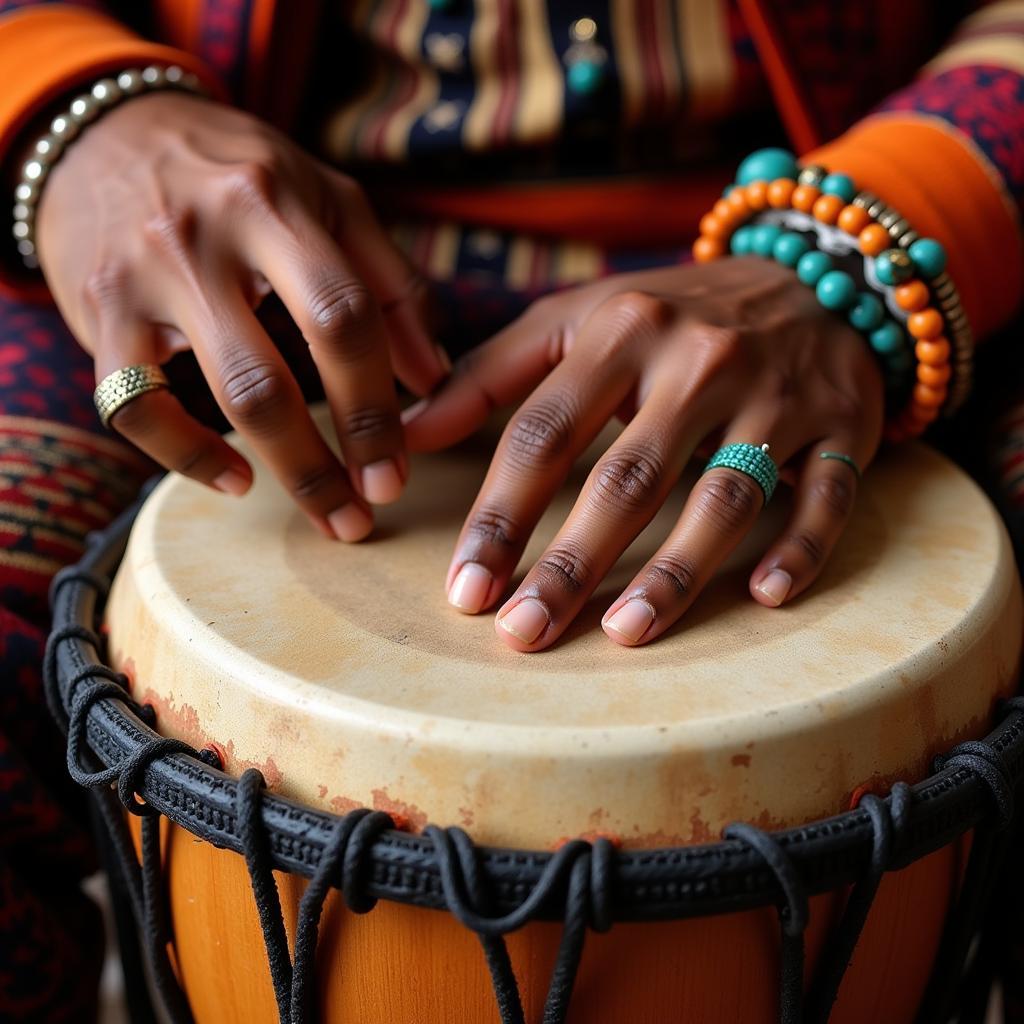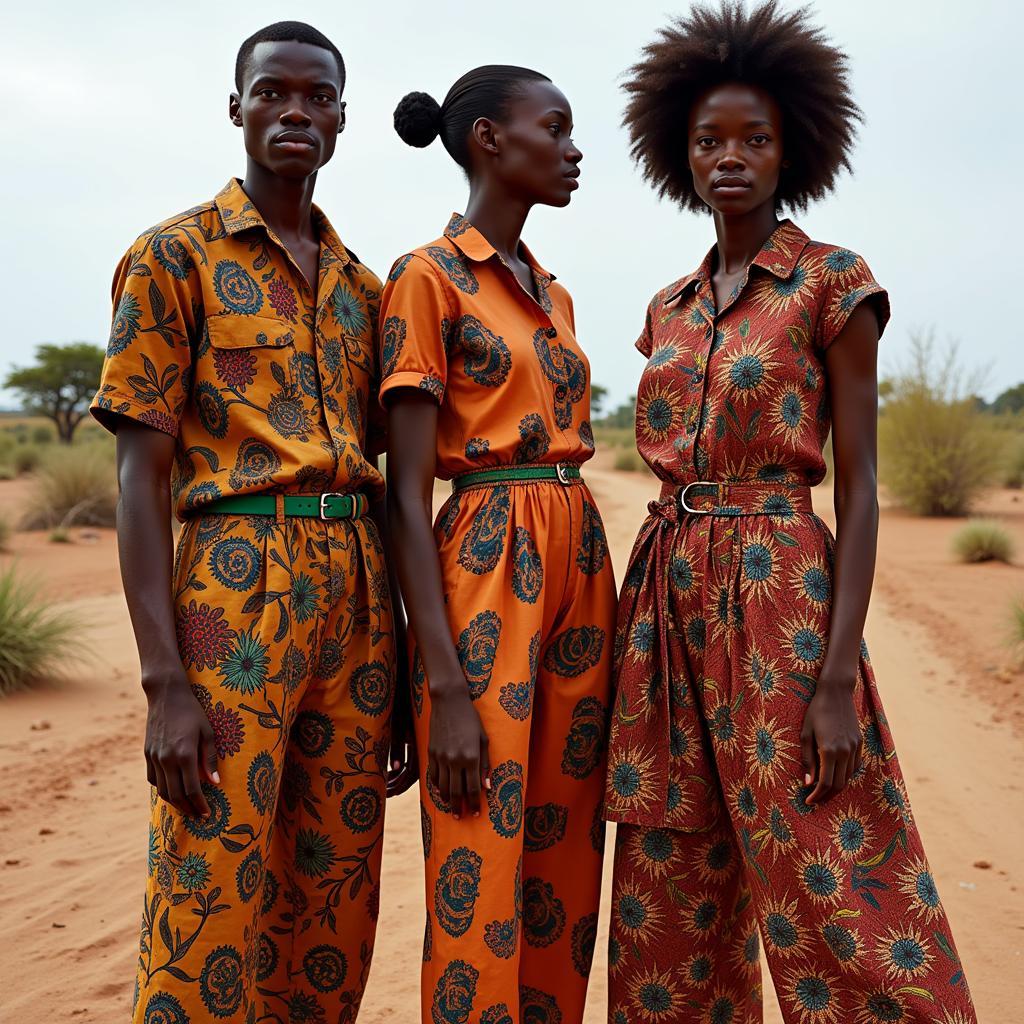The African Earth Goddess: A Celebration of Mother Nature’s Power
The African Earth Goddess is a powerful symbol of the interconnectedness of nature, humanity, and the divine. Across the continent, various cultures have venerated these goddesses, each with their unique attributes and stories. They represent the life-giving power of the earth, the nurturing force of motherhood, and the cyclical nature of life, death, and rebirth. This article delves into the rich tapestry of African earth goddesses, exploring their origins, attributes, and the enduring significance of their presence in African culture.
Exploring the Different Faces of the African Earth Goddess
The concept of an earth goddess is ubiquitous in many African cultures. While each goddess holds a distinct place in the cultural landscape, there are common themes that bind them together. The power of the earth is often personified as a female figure, embodying the generative forces of nature, the fertility of the land, and the cyclical rhythms of life.
Here are some notable African earth goddesses that represent the diversity of traditions and beliefs:
-
Ashanti: Asase Yaa – The Ashanti people of Ghana revere Asase Yaa, who embodies the very essence of the earth. She is responsible for the fertility of the land, the growth of crops, and the well-being of the people. Asase Yaa is often depicted as an older woman, symbolizing wisdom, experience, and the enduring strength of nature.
-
Yoruba: Oya – In Yoruba mythology, Oya is a complex and powerful goddess, often associated with the wind, storms, and the rivers. She is a fierce protector and a force of nature, embodying both destruction and creation. Oya is also known for her connection to the spirit world and her ability to guide the souls of the dead.
-
Zulu: Nomkhubulwane – The Zulu people of South Africa have a strong connection to the earth and revere Nomkhubulwane, the mother of all things. She is the protector of the land and the source of fertility. Nomkhubulwane is often depicted as a large, powerful woman, symbolizing the strength and resilience of nature.
-
Dogon: Amma – The Dogon people of Mali believe that Amma, the creator goddess, is responsible for the creation of the universe and everything within it. Amma is a powerful force of creation and represents the interconnectedness of all things.
The Significance of the Earth Goddess in African Culture
The presence of the earth goddess is deeply embedded in the fabric of African culture. These goddesses serve as a reminder of the interconnectedness of all living things, and the importance of respecting and protecting nature. They are powerful symbols of female strength, wisdom, and the cyclical nature of life.
“The earth goddess reminds us that we are not separate from nature, but rather a part of it. We must treat the earth with respect and care for it, as it cares for us.” – Amina Mbowe, Traditional Healer
The veneration of the earth goddess also underscores the importance of fertility and the abundance of the land. In societies where agriculture plays a vital role in survival, the goddess is seen as a source of blessing and protection. Rituals, ceremonies, and offerings are made to her to ensure bountiful harvests and the health of the land.
The Earth Goddess Today: A Call to Action
In the modern world, the concept of the earth goddess remains relevant. As we face the challenges of climate change, environmental degradation, and the depletion of natural resources, the earth goddess serves as a potent reminder of the need to honor and protect our planet.
“We must remember the earth goddess, not only in our stories and traditions but also in our actions. She reminds us that our actions have consequences and that we must live in harmony with nature if we are to survive.” – Kofi Kweku, Environmental Activist
Here are some ways we can honor the earth goddess today:
-
Respect and protect the land: Avoid polluting the land and water, practice sustainable agriculture, and support organizations dedicated to protecting the environment.
-
Live in harmony with nature: Recognize the interconnectedness of all living things and strive to live in a way that minimizes our impact on the earth.
-
Celebrate the diversity of life: Acknowledge and appreciate the beauty and richness of the natural world and its myriad life forms.
Frequently Asked Questions (FAQs)
1. What is the difference between the African earth goddess and other deities?
While other deities may have specific roles and powers, the earth goddess represents the fundamental source of life and fertility. She embodies the power of nature itself.
2. Are there any specific rituals associated with the earth goddess?
Yes, many African cultures have specific rituals, ceremonies, and offerings dedicated to the earth goddess. These often involve offerings of food, libations, and prayers to ensure the well-being of the land and its people.
3. How can the earth goddess help us today?
The earth goddess serves as a reminder of our interconnectedness with nature. She teaches us the importance of respect, stewardship, and living in harmony with the environment. Her message is timeless and essential in our modern world.
Conclusion
The African earth goddess is more than just a mythical figure; she is a symbol of the enduring power of nature, the importance of female strength, and the need for us to live in harmony with our planet. As we continue to face environmental challenges, the earth goddess’s message of respect, stewardship, and interconnectedness becomes ever more relevant. Let us honor her legacy by living in harmony with nature and protecting the very essence of our shared home.


